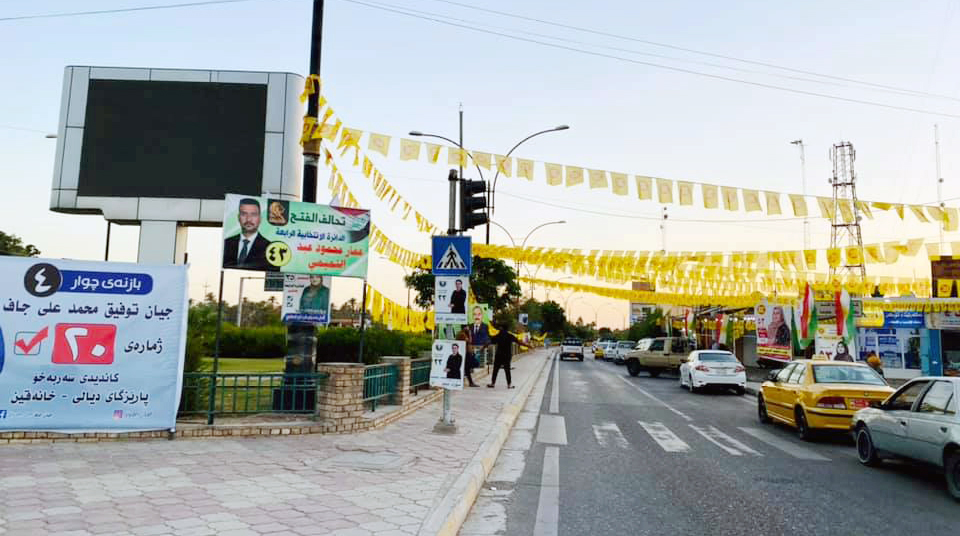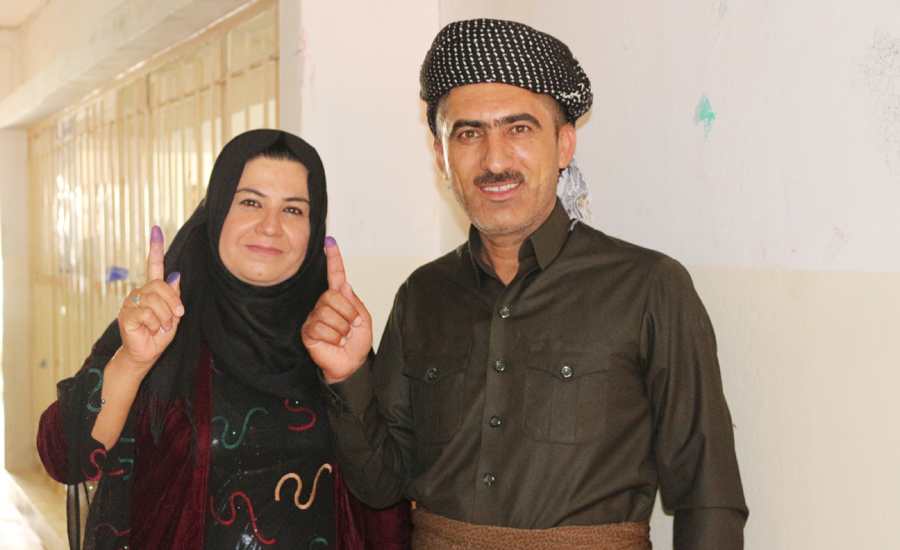The Kurdish political parties participate in the Nineveh Provincial Council elections with four lists and alliances in the provincial elections scheduled to be held on December 18, 2023, while each side blames the other for being the reason behind this dispersion.
The Kurdistan Democratic Party KDP participates in the elections with an independent list, while the Patriotic Union of Kurdistan PUK enters the competition within the framework of the Nineveh People's Union alliance with a number of Arab parties and various components.
The Kurdistan Social Democratic Party KSDP and the Kurdistan Communist Party KCP participate in the framework of the Civil Values Alliance. In total, about 100 candidates will enter the elections to compete for the 26 provincial council seats.
The number of seats in the Nineveh Provincial Council, which will be one electoral district, is 29 seats - three of which are quota seats. In the last parliamentary elections in 2021, the number of those entitled to vote in Nineveh Governorate reached 1,838,600 people out of 2.5 million population, of whom 894,987 voters participated, only 48.68%, according to the figures by the Independent High Electoral Commission IHEC.
Abdullah Goran, head of the elections department at the Nineveh Organization Center of the PUK, told KirkukNow, “Before publishing the names of the candidates, lists, and alliances, we tried with all the Kurdish political parties to form a joint list for Nineveh Governorate, but the other parties refused to do so, so we waited for a while.”
“We did not present our list, but to no avail, so we formed a joint list with a number of Arab parties and Nineveh figures.”
We tried with all the Kurdish political parties to form a joint list for Nineveh Governorate, but the other parties refused to do so
Some Kurdish parties that participated in the previous elections decided not to participate in these elections, such as the Gorran (Change) Movement, the Kurdistan Islamic Union KIU (Yakgrtw), and the Kurdistan Justice Group (Komal).
Khalil Ibrahim, media official of the KIU, told KirkukNow, “The reason for not participating is due to the special situation of Nineveh Governorate.”

Flags and posters of political parties participating in the Iraqi Parliament elections on a street in Khanaqin district of Diyala province, September 2021. KirkukNow.
With the exception of the KDP and PUK, no Kurdish party was able to win seats in the Nineveh Provincial Council or seats for the governorate in the Iraqi parliament.
The KDP stated that it is looking forward to increasing the number of its seats in these elections, and includes on its list candidates from all religious and ethnic components.
In the previous Nineveh Provincial Council elections, the KDP won nine seats in addition to two quota seats, thus obtaining the position of Chairman of the Provincial Council and Deputy Governor and becoming the main component of the local government in Nineveh.
“We have an independent list that includes 52 candidates and we are ready to compete,” Manaf Hassan, the official of the KDP’s electoral institution in the Nineveh branch, told KirkukNow. “We have candidates from all components of the governorate, such as Arabs, Turkmens, Yazidis, Shabaks, and Christians though we did not conclude an agreement with any party.”
We have candidates from all components of the governorate, such as Arabs, Turkmens, Yazidis, Shabaks, and Christians
Regarding participation in the elections with the PUK, Manaf said, “We will not conclude agreements with the Patriotic Union because they agreed with anti-Kurdish parties.”
“Other parties such as the Islamic Union and the Kurdistan Justice Group will not participate. In fact, the situation in Nineveh required the Kurdistan Democratic Party to participate with an independent list in Elections: One vote means a lot to the Kurds. Under the current circumstances in Nineveh, we seek to increase the number of our seats.”
On the other hand, the PUK blames the KDP for not concluding a unified Kurdish list. “In the previous elections for the Nineveh Provincial Council, the Kurds were more united. At least we participated with the Kurdistan Democratic Party on a joint list, and the Patriotic Union won three seats, but unfortunately the Kurdistan Democratic Party agreed with other parties to form the local government,” Abdullah Goran says.
“We were marginalized, so we became the opposition.”





